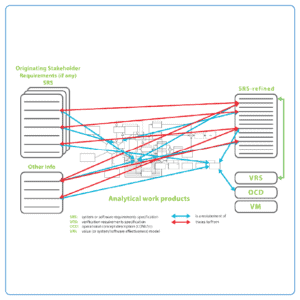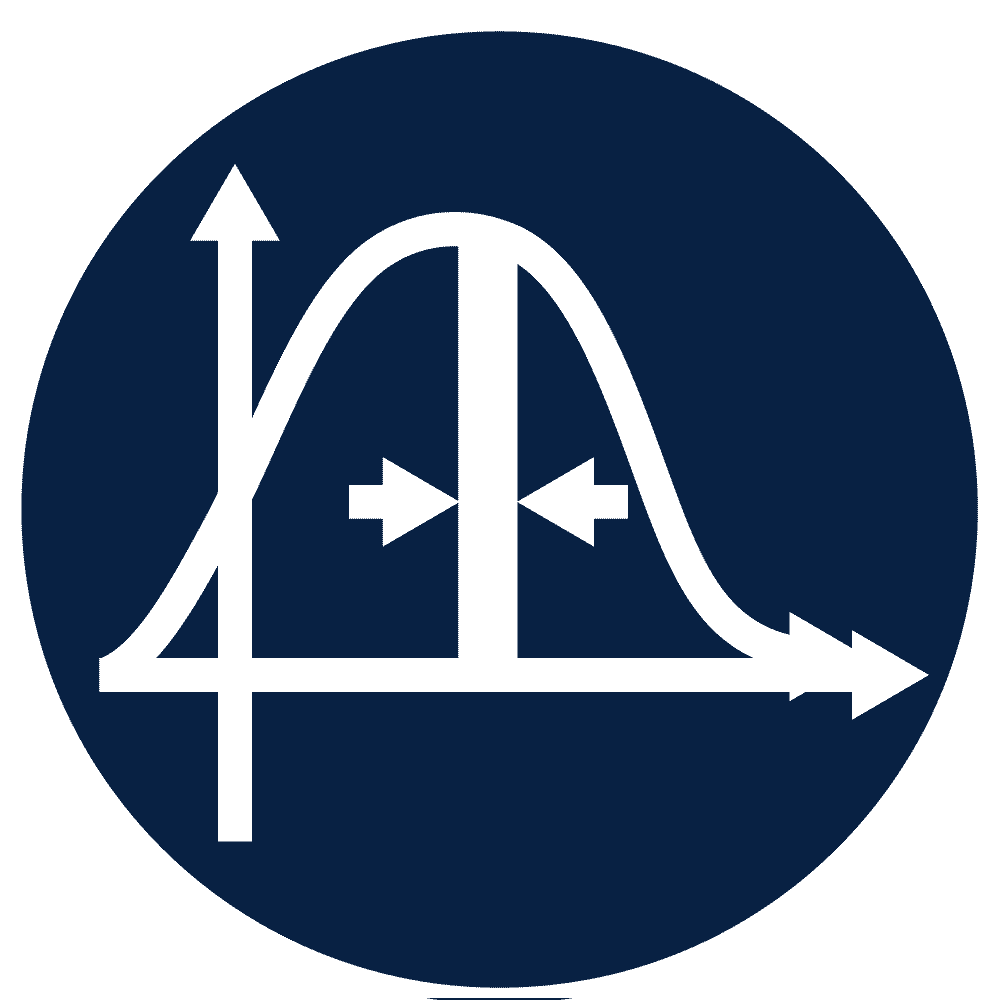Home » Training » Requirements & Specifications Training Courses » Requirements Analysis and Specification Writing Fundamentals
Requirements Analysis and Specification Writing Fundamentals
This 3-day overview course will help you avoid the single most common cause of project problems - defective and incomplete requirements.
- 3 Days
- Available for Corporate Training only (In-person or online)
- Certificate upon completion
- Professional Development Credits
Get Started Today
View the schedule and register your interest.
Let's Talk
Whether you have a question or are looking to find out more about our training options then please get in touch with us below.
- Summary
- Full Schedule
- Course Overview
- Course Outline
 Endless studies have shown that developing the wrong thing is the single most common cause of project problems and failures. Requirements analysis and specification writing, performed well, addresses this reality head-on. Sadly, requirements analysis and specification writing are sciences practiced by many, mastered by surprisingly few. And yet, the payoff from achieving excellence in these areas is huge. The two aspects, requirements analysis (requirements capture and validation using analysis) and requirements specification, are separable but related topics covered by this valuable overview training.
Endless studies have shown that developing the wrong thing is the single most common cause of project problems and failures. Requirements analysis and specification writing, performed well, addresses this reality head-on. Sadly, requirements analysis and specification writing are sciences practiced by many, mastered by surprisingly few. And yet, the payoff from achieving excellence in these areas is huge. The two aspects, requirements analysis (requirements capture and validation using analysis) and requirements specification, are separable but related topics covered by this valuable overview training.
The requirements analysis content of the training addresses the techniques used to capture, validate and gain a sufficient understanding of requirements communicated at all stages of the system life cycle. The specification writing content addresses in detail the conversion of individual requirements into great requirements specifications.
The requirements analysis content provides highly effective tools for both the capture of requirements, and for validation of those requirements, in any scenario involving the receipt of requirements from one or more stakeholders who have a need. A workshop approach is used extensively, to maximize learning and practical application. Effectiveness of the techniques, integrated to comprise an efficient methodology, is independent of the domain of application, and independent of the specifics of the need. These techniques have been used with great success.
The specification writing content provides detailed instructions on the conversion of requirements into highly effective requirements specifications. Issues of structure (organization of information) and the use of (English) language throughout a requirements specification are examined. High quality templates/guides, with examples, are provided for the specification of systems, software, interfaces and services, respectively. The techniques of specification writing that are taught have been used to great effect in scenarios that include acquisition, supply, product definition (both hardware and software), enterprise internal projects, business analysis and diverse engineering projects, large and small.
- This course may be credited toward the maintenance of the INCOSE Certified Systems Engineering Professional (CSEP) certification for 24 Professional Development Units and PDUs may be claimed for PMI’s family of certifications, including PMP
- This course qualifies for Engineers Australia and Engineering New Zealand (IPENZ) CPD purposes (24 hours)
- This course is accredited by ECSA South Africa for CPD 3 points (ref. INCOSE 21/013)
- This course may qualify for CPD, CLP and similar purposes with other organizations (24 instructor hours)
- This course may be credited toward the maintenance of the Project Management Institute (PMI) certifications. Suggested PMI Talent Triangle® PDU allocation:
- Ways of Working – 23
- Business Acumen – 1
Upcoming Courses
Register and pay 30 days prior to the course commencement date to receive a 10% early bird discount. Or register a group of 3+ for a 10% group discount. Available for corporate training worldwide.
THIS COURSE IS AVAILABLE FOR CORPORATE TRAINING ONLY.
Key Learning Objectives:
At the conclusion of this training, participants are expected to have learned:
- why requirements defects remain the single biggest cause of project problems and failures;
- why these problems are largely avoidable, and how to avoid them;
- how to determine whether requirements you receive are already good enough – measuring requirements quality;
- why requirements elicitation alone is hopelessly inadequate;
- the 14 qualities of requirements that make requirements good requirements;
- how to achieve these qualities – a very high ROI, very efficient methodology for capturing missing requirements, validating and fixing (where necessary) all requirements;
- how to write individually excellent requirements using PPI’s Parsing Template;
- the eight criteria for structuring requirements into requirements specifications;
- how to meet these criteria, producing great requirements specifications; and
- the differences between function and performance-oriented versus design-oriented requirements specifications, and the importance of the distinction.
Training Method and Materials:
The course is delivered using a mixture of formal presentation, informal discussion, and extensive workshop activities. The workshop sessions are used extensively to reinforce learning and to contribute to the development of understanding.
You will be provided with:
- comprehensive course notes;
- workbook containing workshop exercises;
- workshop model solutions;
- checklists, forms and charts which you can put to use immediately; and
- complimentary access to PPI’s evolving Systems Engineering Goldmine.
Who Should Attend This Course?
Requirements Analysis and Specification Writing is designed for developer, acquirer and supplier personnel who, in any capacity, deal with requirements.
Do you Offer Tailoring of this Course?
Yes. All courses are tailored informally verbally in delivery by selecting, where possible, examples matched to the domains of interest to the class. We can also work with you to design a formally customized curriculum for the development of your people. We have done so for many client companies, and we would love to work with you to this end. We always suggest that a client takes the corresponding standard course prior to any customization. For systems engineering, this is because systems engineering is the problem-independent and solution technology-independent principles and supporting methods for the engineering of systems, based on systems thinking. So the objectives of customization need to be very clear and focused on adding further value. In practice, customization, if performed, usually becomes the replacement of examples and possibly the main workshop system with domain-specific equivalents. Substitution of the workshop system usually involves substantial redevelopment of courseware. Out of necessity, formal tailoring of courseware is performed on a fee basis.
1. Requirements Analysis
- what are requirements?
- types of requirements, and how they relate to analysis, specification & design
- requirements quality attributes
- requirements languages other than natural: operational, formal
- requirements analysis (RA) – how to do it
- workshop – context analysis
- workshop – design requirements analysis (interactive whiteboard exercise)
- workshop – states and modes analysis
- workshop – parsing analysis
- requirements quality metrics
- workshop – functional analysis
- lean concepts in functional analysis for the product-oriented enterprise
- ERA analysis, rest of scenario analysis, out-of-range analysis, other constraints search, stakeholder value analysis
- the Operational Concept Description (OCD)
- managing RA
- requirements analysis and management software tools
- common pitfalls in performing RA
2. Requirements Specifications
- the eight types of requirements and their significance to specification writing
- differences for software and services
3. Specification Types
- the ten types of requirements specification
- score sheet for public domain requirements specification standards
4. Structuring Your Requirements Specification
- structuring a system requirements specification
- dealing with variants
- Workshop – writing a Scope section
- dealing with states and modes
- functional versus design oriented specifications
- structuring to specify function and performance
- Workshop – classifying requirements as functional or design
- Workshop – writing a functionally oriented requirements specification
- Workshop – writing a design-oriented requirements specification
- Workshop – structuring a specification to deal with states, modes, and functions (optional)
- specifying other requirements types – environmental, resource, physical and other qualities
- structuring the specification of any design direction in requirements
- structuring an Interface Requirements Specification
- structuring a Statement of Work
5. Requirements Specification Writing in English–Use of Language
- requirement writing template
- Workshop – using the parsing template
- requirements constructs
- cross shall, should, will, and may
- syntax in general – the helpful, the problematic, work-arounds
- linking
- cross-referencing
- defining terms
- context dependence
- reference to applicable documents
- use of precedence
- using success criteria to express otherwise vague requirements
- Workshop – using success criteria
6. Requirements Specification Writing in Summary
Featured Course Reviews

Great material and the knowledge of the presenter. The course provided very valuable information that will be put to use immediately.
Anthony

I learned a great deal about my co-workers by observing their reactions to the course material – an invaluable part of the course for me. I will also benefit from the templates and other example/reference material. Being able to use these tools or standard templates will also be highly beneficial.
Jane

Good structure in the course, supplemented by professional course material, presented by a presenter who knew what he was talking about.
Luke

Great material and the knowledge of the presenter. The course provided very valuable information that will be put to use immediately.
Kate
More Courses For You
Introduction to Requirements Analysis
Effectively capture requirements
Preparing Great Requirements Specifications
Learn structure & language
Requirements Analysis
Effectively capture requirements
Requirements Analysis and Specification Writing
Avoid developing the wrong thing
Requirements Analysis and Specification Writing Fundamentals
Capture, validate & specify
Requirements Engineering (English Second Language)
Avoid requirements problems
Requirements, OCD & CONOPS in Military Capability Development
Develop capability successfully
Specification Writing
Prepare great specifications
